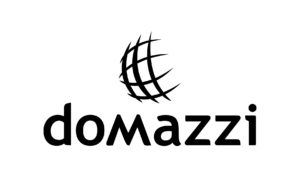Brazil is one of the world’s biggest economies and emerging markets, and their appetite for UK Food & Drink products has grown significantly in recent years, and with the impact of COVID-19 shaping new consumer trends throughout the population, opportunities for UK suppliers looking to export to the country looks set to increase further.
We sat down with Thaysa Oliveira, based in the British Embassy in São Paulo, to find out more about the Brazilian market, the current Food & Drink trends and what companies should expect when selling to Brazil.
- Brazil is not the easiest market to enter and success will rely on patience and the company’s willingness to research the market thoroughly.
- There are different trends in different regions of South America, therefore your product might work in one region but not another, don’t let this deter you
- Have an ice breaker chat before any formalities at your business meeting with potential Brazilian buyers.

Hi Thaysa, Thank you for taking the time to speak with us about the food & drink sector in Brazil.
Can you give our members some background on the Department for International Trade team based in Brazil and how the British Embassy in-market supports UK businesses looking to export to Brazil?
The Food & Drink team based in Brazil works to promote exports from UK companies whilst also having a heavy focus on tackling market access barriers. The team is comprised of three people and is split between the capital Brasília, where policymakers and regulators are based, and the city of São Paulo – which hosts most of the key businesses and consumers.
Our team has a wide network of distributors and importers in the retail and food & drink industry. Through the network, we are able to facilitate introductions between companies and provide advice on the best routes to market. In addition, we also have extensive knowledge around the challenges of operating in Brazil, particularly the food & drink industry which can be extensively regulated. Because of that, part of our job is to work with the Brazilian government to address and remove some of the barriers that prevent UK businesses from exporting to this market.
Why should our UK’s Finest members consider exporting to Brazil?
As one of the world’s biggest economies and emerging markets, Brazil is home to a large and ever-growing middle and upper-class population of consumers seeking high-end, premium, innovative products.
Brazil is the largest economy in South America and the fourth-largest market in the world for Scotch Whisky (based on volume). In recent years, the import market for gin, beer and non-alcoholic beverages has also grown significantly.
Furthermore, consumers are also seeking more variety in teas, snacks and chocolates. Brazil is home to over 210 million people and remains a largely untapped market by British brands. With the premiumisation of the economy, we expect more opportunities will arise for UK companies as consumers start to seek more refined and niche-oriented products.
“UK companies should view the Brazilian market as a long-term option. It is not the easiest market to enter and success will rely on patience and the company’s willingness to research the market thoroughly.”
How has COVID impacted the market in Brazil?
Across most of the world, people’s habits have changed greatly – with fewer activities happening outside their homes and more frequent shopping at stores like supermarkets and grocery stores.
The food-service industry was the most affected segment in the food and drink sector and has only now been experiencing a steadier return to normality. Even though many businesses shut down as a direct result of the pandemic. In contrast, the pandemic has boosted e-commerce sales, and the demand for premium and niche products wasn’t severely affected by the pandemic in the retail segment. Many Brazilians started consuming more products at home, including spirits, chocolates and biscuits.
With global risk aversion increasing and exchange rates fluctuating, importing new products has become more challenging and costly for Brazilian buyers, many of whom have reported being less willing to take more risks.
Are there any particular opportunities that you’ve seen as a result of the bounce back?
Some trends that arose during the pandemic might be here to stay. Businesses in the restaurant and bar industry might begin to seek innovative products to stay afloat, including beer, spirits, and even cheese! Consumers that have started to enjoy more premium drinks and spirits at home (whether through e-commerce or retail channels) might continue to do so after the pandemic, albeit in comparison at a much slower pace of growth. With the economy getting back on track, Brazil’s middle and upper classes should be able to resume their upward trajectory – meaning more opportunities for exporters.
Are there any other Food & Drink trends that our members should know about?
Dairy and meat-alternative products and food-techs have been a growing trend in Brazil, although still at a slower pace when compared to developed markets. This is also true for ready-to-drink or consumer-ready products, as well as healthy food options. The challenge is that Brazil is becoming a thriving hub for food-techs, with many of these companies being able to domestically produce their products (although sometimes with imported inputs), and often Brazilian companies can provide much cheaper alternatives to this category of imported foods.
Are there trends that are seen in different regions in Brazil, that might work in one area but perhaps not in another?
As a continental-sized country, Brazil is extremely diverse in terms of its culture and economy. Thus, consumers and retail segments differ across the country.
Brazil’s major and wealthy states such as São Paulo and Rio de Janeiro play a major role in the imports market, given they hold the lion’s share of the country’s population and wealth. That’s certainly the case in terms of our key commercial contacts and partners.
Nevertheless, there are opportunities throughout the country, and distributors play an important role in identifying the ideal targets for individual products, depending on the profile of consumers in various regions of Brazil.
“As a continental-sized country, Brazil is extremely diverse in terms of its culture and economy. Thus, consumers and retail segments differ across the country.”
Brazil is the largest economy in South America therefore would you say Brazil is a gateway to South America?
Both yes and no. Brazil is the only Portuguese-speaking country in South America, and due to its size, it can be an adventure all of its own. However, as the biggest economy in South America, it can be seen as a first step or priority in accessing the region. This is normally true for the Mercosur bloc (comprised of Argentina, Uruguay and Paraguay), whereas other economies in the region normally have a very different business environment.
Are there any challenges in exporting to Brazil? And how easily are they able to overcome?
Since Brazil has a very high import tariff and unfavourable exchange rates, imported products are almost always considered premium. Bureaucracy is also a challenge, but not a complete obstacle. It is 100% possible to navigate through Brazilian bureaucracy, this is not an impediment to trade, but rather something to bear in mind and something that will require extra care if you are exporting to the Brazilian market.
Is there anything UK companies should know when meeting in person or communicating digitally via email/video calls?
UK companies should view the Brazilian market as a long-term option. It is not the easiest market to enter and success will rely on patience and the company’s willingness to research the market thoroughly.
In the Food & Drinks sector, it is fundamental to identify reliable local partners or third-party partners to assist with navigating the local market.
Companies will have to invest in face-to-face meetings and getting to know potential partners to cultivate successful business deals. Frequent visits and exhibiting at trade shows can be a useful method of gaining the trust of prospective associates as well as acquiring market knowledge.
“UK companies should view the Brazilian market as a long-term option. It is not the easiest market to enter and success will rely on patience and the company’s willingness to research the market thoroughly.”
And finally, do you have any tips for our members when they are conducting business meetings with Brazilian buyers?
Brazilians don’t usually jump straight into business when having meetings, so make sure to have a nice ice-breaker chat before any formalities. Relationship-building is extremely important when it comes to doing business in Brazil, so having a regular (and positive) pace of engagement is key for successful deals.
Thank you for your time Thaysa, this has been very informative for our UK’s Finest members.
Looking for Brazilian buyers? We are pleased to announce we have two Brazilian buyers on UK’s Finest, ready to connect with; Aurora Fine Brands and Domazzi Importação e Exportação Ltda.
 Aurora Fine Brands
Aurora Fine Brands
Aurora is a Brazilian family company, which stands out for its history of almost 75 years. Since 1946, Aurora has been importing and distributing the most renowned premium, international and leading food and beverage brands.
Aurora are interested in purchasing Alcoholic & Non-Alcoholic Drinks, Confectionery, Oils & Vinegars, Snacks, Ingredients & much more.
 Domazzi Importação e Exportação Ltda
Domazzi Importação e Exportação Ltda
Domazzi are importers and distributors of a wide variety of products, focused on Food and Beverage for a selected middle/high-end group of supermarket chains in Brazil. They have almost 40 chains that consist of 400 stores in 16 states of the country.
Domazzi are interested in suppliers of Cakes, Confectionery, Dairy, Cheese & Deli, Herbs & Spices, Snacks & more.
Not registered on UK’s Finest?
In order for you to connect with these buyers, you’ll need to be registered to UK’s Finest as a UK Seller (eligibility criteria applies). Please registered via the link below, using our online step-by-step guide to help you craft a profile that stands out from the crowd.
